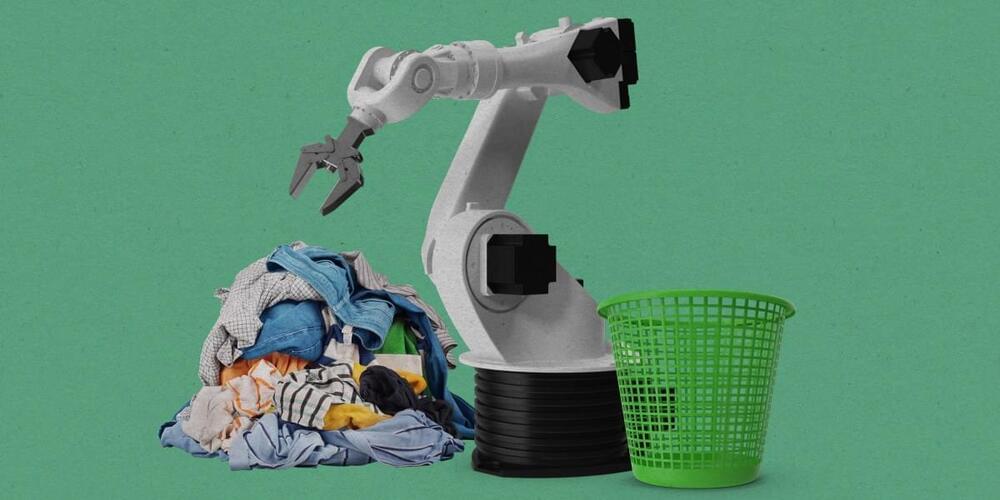We’re on a journey to advance and democratize artificial intelligence through open source and open science.



Researchers mapped over 10,000 mouse hippocampal #neurons, creating the world’s most comprehensive database of single-neuron #connectivity #patterns.
Summary: Researchers unveiled the most extensive single-neuron projectome database to date, featuring over 10,000 mouse hippocampal neurons.
The study provides an unprecedented view of the spatial connectivity patterns at the mesoscopic level, crucial for understanding learning, memory, and emotional processing in the hippocampus. By employing machine learning algorithms for categorizing axonal trajectories and integrating spatial transcriptome data, researchers identified 43 distinct projectome cell types, revealing intricate projection patterns and soma locations’ correspondence to projection targets.
This work, accessible via the Digital Brain CEBSIT portal, lays the structural foundation for advancing our knowledge of hippocampal functions and their molecular underpinnings.



Google Maps is introducing a generative AI feature to help you discover new places, the company announced today.
Using large language models (LLMs), the new feature analyzes the over 250 million locations on Google Maps and contributions from over 300 million Local Guides to pull up suggestions based on what you’re looking for. For instance, if you want to find cool thrift shops in San Francisco, you can search “places with a vintage vibe in SF,” and Maps will generate shopping recommendations organized by categories, as well as “photo carousels and review summaries,” the company explains. The new feature is meant to feel more conversational than the ordinary search experience. If you ask a follow-up question like “How about lunch?” the AI will take your previous interest in vintage and find restaurants that meet the criteria, such as an old-school diner.
The company says the feature should be able to generate recommendations on even the most niche or specific query.
For years, Google (or any other search engine) has been the main gateway for people to discover websites and other content. The Browser Company, which makes the Arc Browser, is on a quest to change that by building an AI that surfs the web for you and gets you the results while bypassing search engines.
The company laid out its product roadmap, which talks about releasing a new tool in the next few months where you can tell the browser what you are looking for and it will present you relevant information by automatically crawling the web.
In a video released today, Josh Miller, the co-founder and CEO of the company, shows that users will be able to type something like “Reservation for two people at either Llama Inn or Kings Imperial,” and the browser will return results with available time slots — that will be available in the coming months. Then users can reserve a table by going to a particular website with one click.

Probabl isn’t your average AI startup, as this new French company is an Inria spin-off company that revolves around an open source data science library called scikit-learn — Inria is a well-known French technology research institute.
As for scikit-learn, with more than 45,000 stars on GitHub, this Python module is widely used by machine learning teams working on tabular data. It can be used for model fitting, predicting, cross-validation, etc.
Unless you’re an ML developer, this might be the first time you’re hearing about scikit-learn. But many big companies have relied on the library for their own products, such as Spotify, Hugging Face, Booking.com and Dataiku.

Hybrid Intelligence, an emerging field at the intersection of human intellect and artificial intelligence (AI), is redefining the boundaries of what can be achieved when humans and machines collaborate. This synergy leverages the creativity and emotional intelligence of humans with the computational power and efficiency of machines. Let’s explore how hybrid intelligence is augmenting human capabilities, with real examples and its impacts on the human workforce.
Hybrid intelligence is not just about AI assisting humans; it’s a deeper integration where both sets of intelligence complement each other’s strengths and weaknesses. While AI excels in processing vast amounts of data and pattern recognition, it lacks the emotional intelligence, creativity, and moral reasoning humans possess. Hybrid systems are designed to capitalize on these respective strengths, leading to outcomes that neither could achieve alone.
In the healthcare sector, hybrid intelligence is enhancing diagnostic accuracy and treatment efficiency. IBM’s Watson Health, for example, assists doctors in diagnosing and developing treatment plans for cancer patients. By analyzing medical literature and patient data, Watson provides recommendations based on the latest research, which doctors then evaluate and contextualize based on their professional judgment and patient interaction.


The Telangana state government in South India, in collaboration with various agricultural aid organizations and technology companies, launched a groundbreaking project known as “Saagu Baagu.” This initiative focused on assisting 7,000 chilli farmers with AI-powered tools, marking a significant step…
Saagu Baagu shows AI’s growing role in agriculture, helping developing-world farmers achieve sustainable and profitable practices.